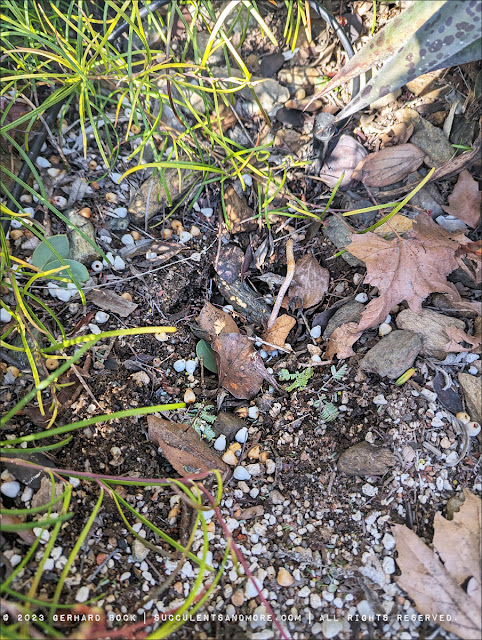Removing a VW Beetle-sized Agave ‘Silver Surfer’ in Michele's garden

We’ve all heard of puppies who turn into adult dogs that are much larger than the owner had ever expected. The same can happen with agaves, as you’ll see in this post. In April 2009, my friend Michele, whose garden is featured in this post , bought a couple of agaves from Cistus Nursery on Sauvie Island near Portland, OR. One was an Agave gentryi ‘Jaws’, the other a new introduction called ‘Silver Surfer’. Both were cute and small, no larger than 4 × 4 inches. Michele still has the original tag: Cistus tag for Agave ‘Silver Surfer’ Agave ‘Silver Surfer’ was introduced by Plant Delights Nursery in 2007, two years before Michele bought hers. The original source was a seedling from a 1992 Yucca Do Nursery seed collecting expedition (YD 45-83) at 5,200’ ft. above Palmillas, Tamaulipas, Mexico . There, Agave americana ssp. protamericana intergrades with Agave asperrima (formerly known as Agave scabra ). The Cistus tag gave the size as “at least” 4 × 5 ft. That’s what Michele went by w...





